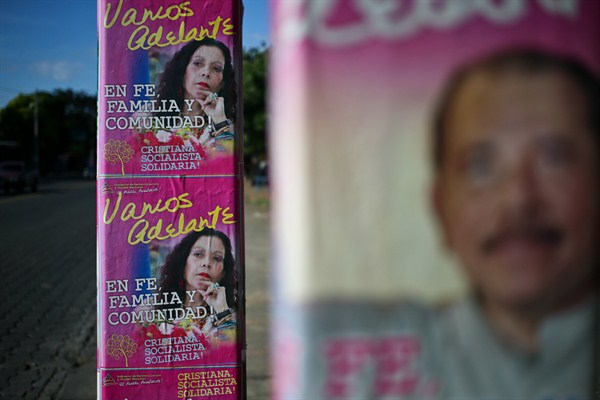On Nov. 6, Nicaraguan President Daniel Ortega of the ruling Sandinista National Liberation Front, or FSLN, was re-elected to a third consecutive term, his fourth overall since 1984. There was little doubt about the outcome of the election given his overwhelming popularity and the lack of any viable opposition. Though Nicaragua’s characteristically high voter turnout was down to 68 percent, Ortega won 72 percent of the vote.
But Ortega’s route to re-election has not been without controversy. Critics point to the erosion of democratic institutions and principles over his past two administrations. In 2010, the country’s Supreme Court cleared the way for his re-election by declaring the constitution’s prohibition on re-election “inapplicable.” In 2014, a constitutional amendment provided for indefinite re-election, while victories at the ballot box in 2011 and 2012 ensured that the FSLN controlled the country’s institutions. Court decisions in 2016 transferred leadership of the main opposition party to a historical faction within the party; its deputies were then required to vacate their seats in the National Assembly after they refused to recognize or meet with the new party leadership. For his detractors, Ortega naming his wife, Rosario Murillo, as vice president was merely the coup de grace to the facade of democracy in Nicaragua.
Ortega’s immense popularity has rendered much of this criticism moot, though. He routinely enjoys approval ratings of more than 70 percent—the highest for any president in the hemisphere. Whether Ortega can hold onto this popularity remains to be seen. Some factors are out of his control: The crisis in Venezuela, for example, threatens access to low-interest loans used to fund vital and popular social programs. While financial and investment forecasts remain positive for Nicaragua, cuts to those programs could undermine Ortega’s popularity.

